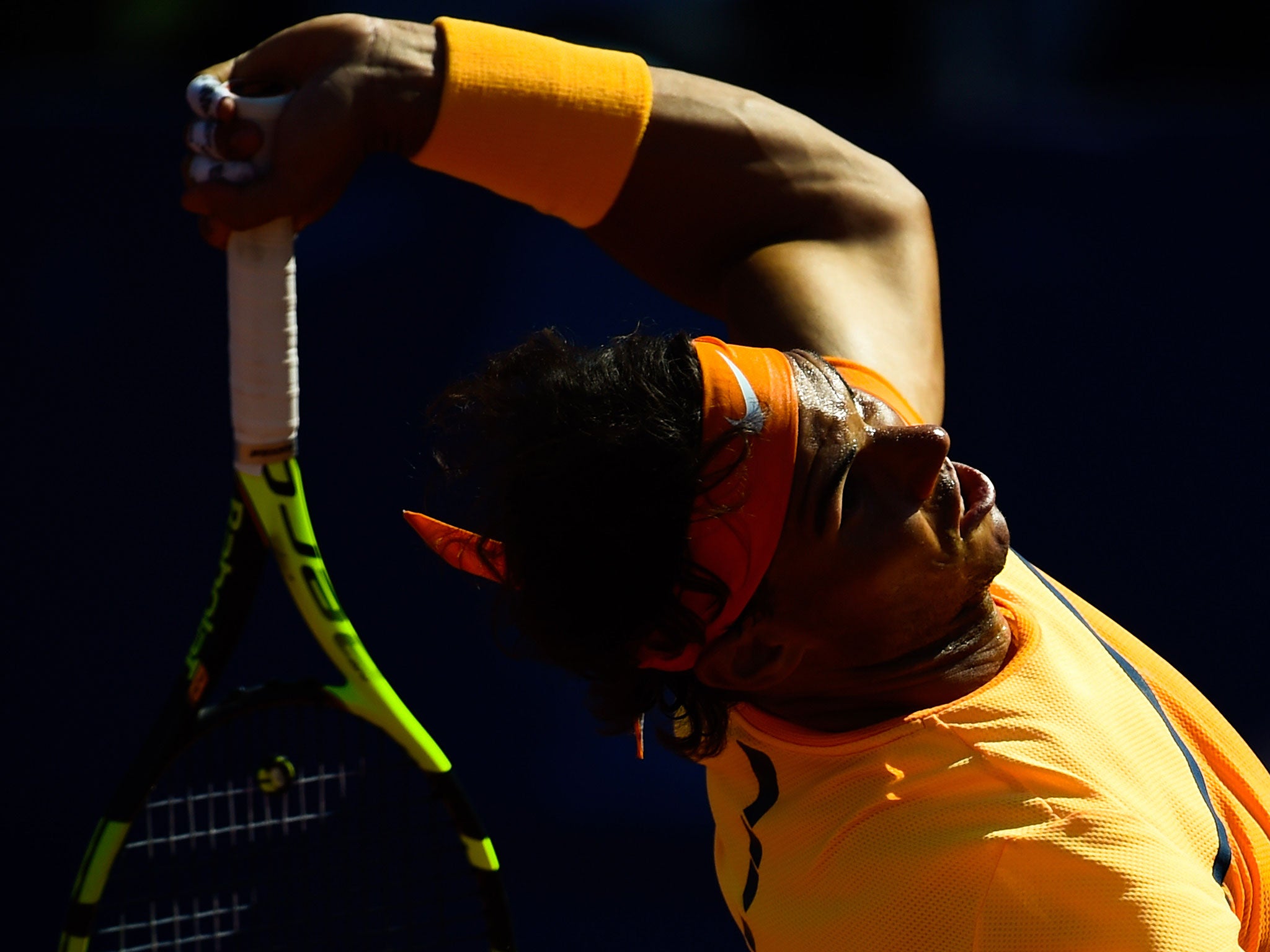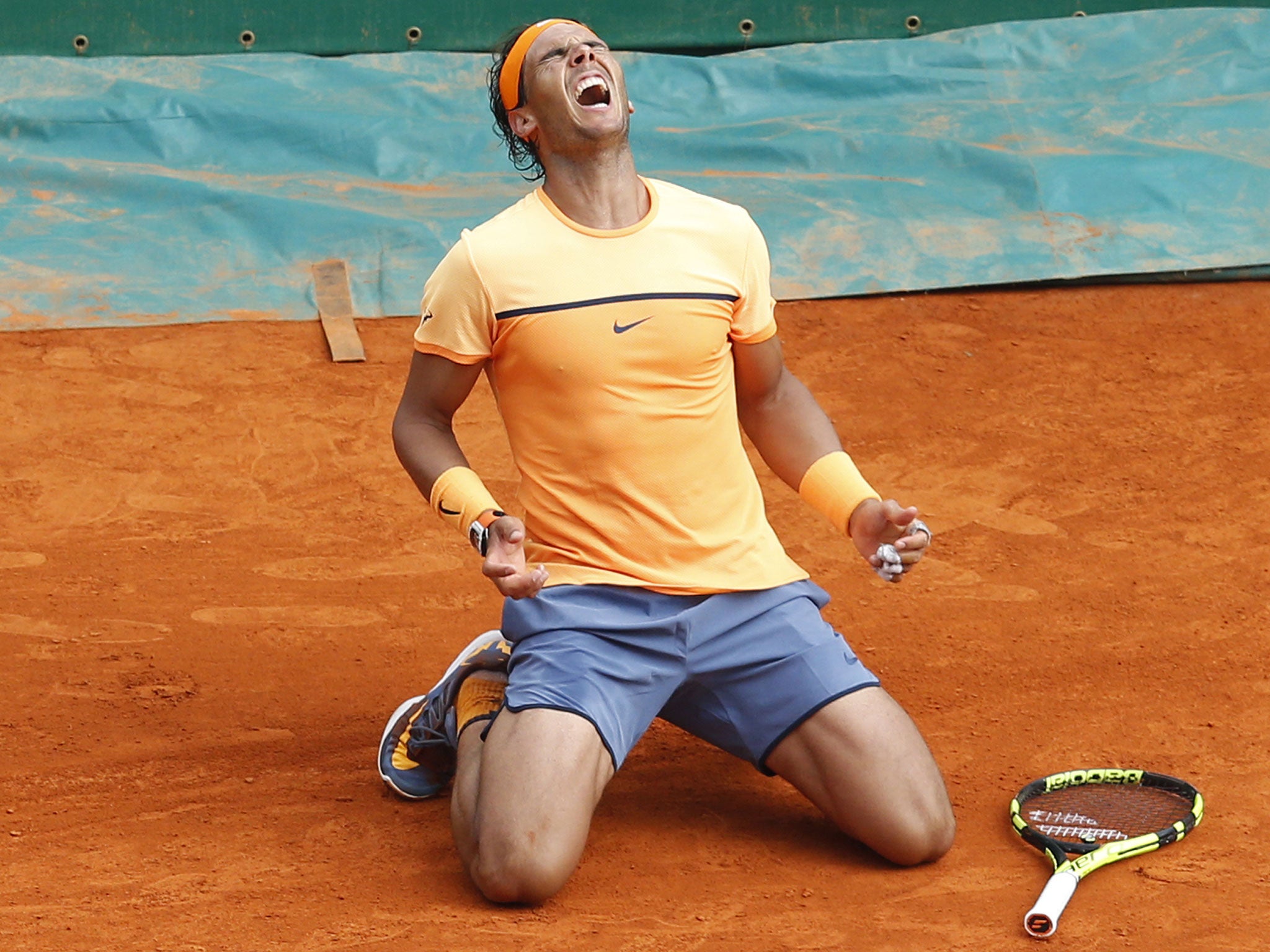Rafael Nadal requests all his drug test results are published following doping accusations
The 14-time Grand Slam winner has started legal proceedings against a former French sports minister who claimed Nadal had tested positive

Your support helps us to tell the story
From reproductive rights to climate change to Big Tech, The Independent is on the ground when the story is developing. Whether it's investigating the financials of Elon Musk's pro-Trump PAC or producing our latest documentary, 'The A Word', which shines a light on the American women fighting for reproductive rights, we know how important it is to parse out the facts from the messaging.
At such a critical moment in US history, we need reporters on the ground. Your donation allows us to keep sending journalists to speak to both sides of the story.
The Independent is trusted by Americans across the entire political spectrum. And unlike many other quality news outlets, we choose not to lock Americans out of our reporting and analysis with paywalls. We believe quality journalism should be available to everyone, paid for by those who can afford it.
Your support makes all the difference.Rafael Nadal wants the International Tennis Federation to publish the results of every drug test he has ever undertaken. The 29-year-old Spaniard has become increasingly irritated by ill-informed comments and speculation about himself and drugs.
Nadal sent his request to David Haggerty, the president of the ITF, on the same day that he started legal proceedings against a former French sports minister who had claimed that his seven-month absence in the summer of 2012 had been “certainly due to a positive test”.
The ITF, which administers the sport’s anti-doping programme, confirmed that it had received Nadal’s letter, including the request to publish the results of all his tests. It confirmed that he had never failed a drugs test and had never been suspended under the anti-doping programme.
“I know how many times I am tested, on and off competition,” Nadal wrote. “Please make all my information public. Please make public my biological passport, my complete history of anti-doping controls and tests.
“From now on I ask you to communicate when I am tested and the results as soon as they are ready from your labs. I also encourage you to start filing lawsuits if there is any misinformation spread by anyone.”
Nadal has been a regular target of doubters, despite the lack of any evidence whatsoever against him. The whispers about the former world No 1 appear to have been based on nothing other than his evident physical strength and the fact that he has had some lengthy periods away from the sport because of injury, particular to his troublesome knees.
The Spaniard would like the tennis authorities to take a more pro-active role in demonstrating to the outside world the strength of the sport’s anti-doping measures. He believes that some members of the public and the media and even some sponsors do not trust the anti-doping programme.
“They think governing bodies cover things up and do nothing,” Nadal said. “We know this is not true.”
He added: “I believe the time has arrived, and our sport and our governing bodies need to step up in communicating well to the world.”

The ITF said that all players have access to their anti-doping records through the World Anti-Doping Agency's database and confirmed that Nadal was free to make his own results available to the public. “The accuracy of any such release would be verified by the ITF,” the governing body said.
Nadal said it was wrong that individuals could make drug-taking accusations without any evidence. He added: “As a player, first an amateur and then a professional, I have been sure that our sport is clean. It is necessary that our sport becomes a flagship in a world where transparency and honesty are two pillars of our conduct and way of living.”
Nevertheless, Nadal’s comments follow Maria Sharapova’s failed drugs test earlier this year as well as criticisms by some leading players over the number of tests that are carried out.
Roger Federer said at the end of last year that there should be more testing across the board and that all players who reach the quarter-finals of tournaments should be automatically tested.
Andy Murray said around the same time that more money should be invested in drug-testing. “The more money that’s invested in it gives you a better chance of catching everyone that’s cheating and also gaining the trust of the public as well, which I think across sport in general is fading,” Murray said.
Join our commenting forum
Join thought-provoking conversations, follow other Independent readers and see their replies
Comments